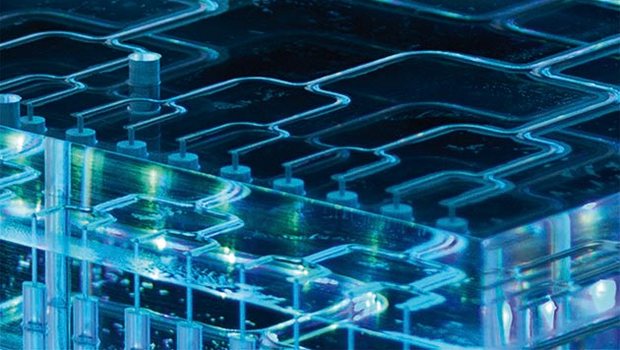Fraunhofer develops propane heat pump

Researchers at the Fraunhofer Institute claim to have developed a viable propane heat pump using low volume heat exchangers and a special compressor.
While energy efficient propane is being used in certain refrigeration and air conditioning applications, heat pumps continue to focus on the use of HFCs. Fraunhofer researchers say they have now co-developed a heat pump as part of a consortium in which propane is used instead.
Although propane has very good thermodynamic properties, it is easily flammable and thus a challenge for use in the heat cycle. “If you want to use propane, you have to keep the amount of refrigerant as low as possible in order to reduce the safety risk,” admits Dr Lena Schnabel, head of the department of heating and cooling technology at Fraunhofer ISE.
Together with European research partners, the ISE team is said to have used highly compact, soldered fin heat exchangers that work well with low liquid volumes. Schnabel and her team developed a distributor with a “bionic” structure: “Conventional venturi manifolds look like spaghetti, piles of many thin tubes that drain into the evaporator. In contrast, our distributor has a continuously branching structure, such as the branches of a tree, which allow an even distribution of the refrigerant into the individual evaporator channels with a small amount of refrigerant. This allows the entire heat exchanger surface to be optimally utilised, thereby increasing efficiency.”
In order to avoid the risk of an explosion during compression of the propane, Schnabel and her team are said to have used a special compressor in which all ignition sources were encapsulated. So that no propane can escape, the individual components of the pump have been very carefully connected.
“At the moment we are modifying the technical design of the heat pump, testing the components in their long-term behaviour and creating sound safety concepts,” Schnabel added.
